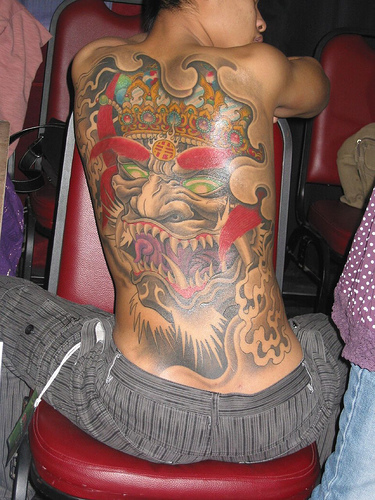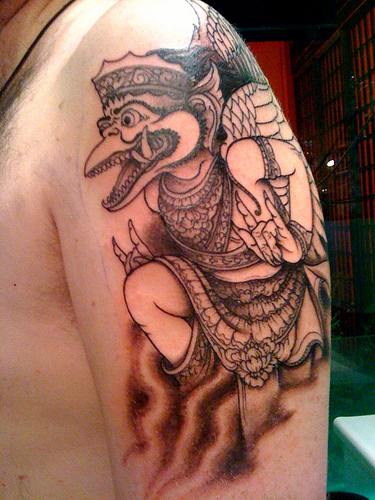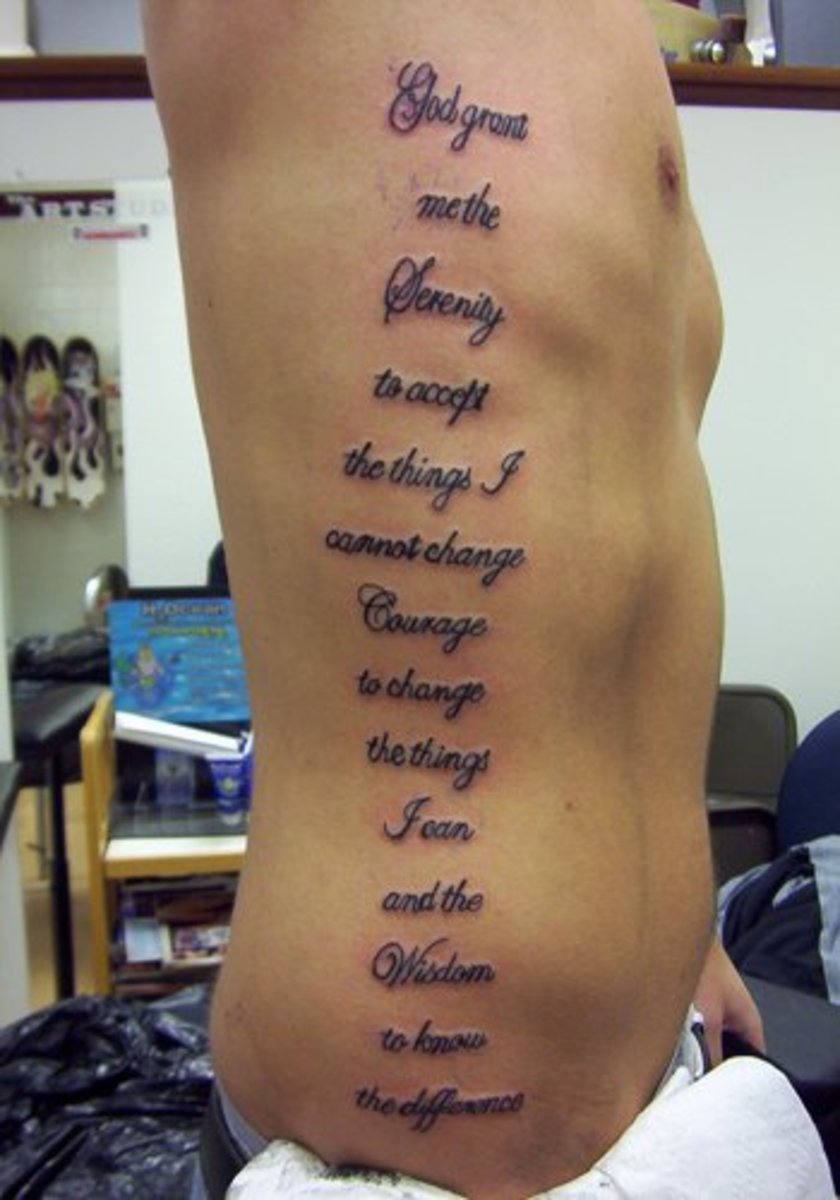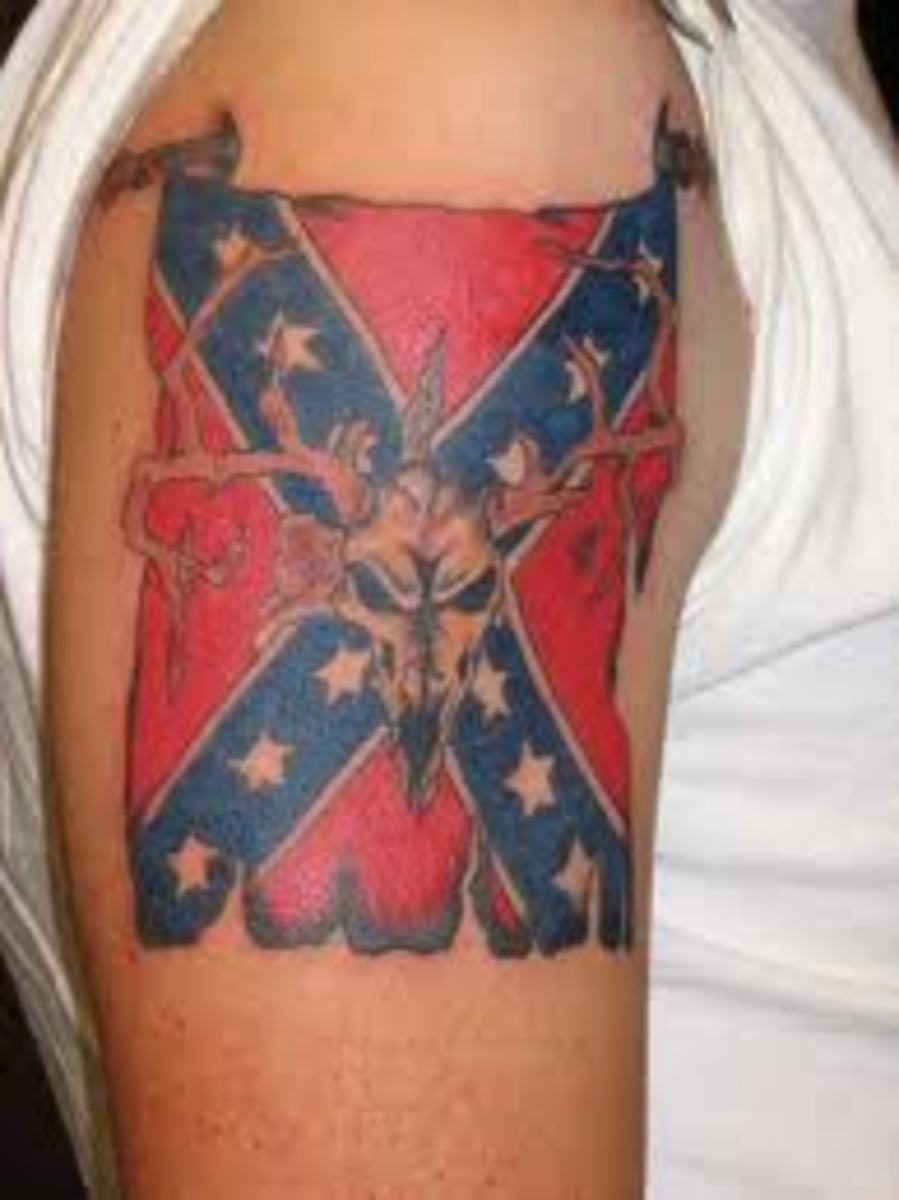Are Tattoos Still Taboo?

Shift in status of tattoo
Tattoos in the Western world were once associated with the bikers, criminals, freaks, thugs, rebels, rockers, prostitutes, sailors, and social outcasts. However, in the past decade, there is a change in its status, with more mainstream people sporting tattoos.
The rise of proper artists in the 1970s also contributed to the change in opinion about tattooing. It was no longer considered dangerous as the art of tattooing has become a well-developed, safe industry.
The dramatic shift in the status of the once-humbled tattoo can be seen from the resounding success of tattoo conventions. Since 2005, the London International Tattoo Convention has been an annual event that attracted thousands of body art fans going there for tattoos. Japan has a girl-only tattoo convention in Tokyo in 2006. Even Singapore has its first tattoo show, The Singapore Tat-2 Show, in January 2009.
Why people tattooed?
The common reasons cited by people for getting their tattoos are:
a rebellious act
exotic and beautiful body art
freedom in expression
individual expression and creativity
influence by friends
in memory of a loved one
just for fun
just wanting one
liking the looks of it
marking milestones, such as life or death
reasserting control over one’s own body
representing patriotism
religious reasons
to convey spiritual meaning
to define group membership
tattoo makes them feel attractive, rebellious, strong, special, sexy, or unique

Think before you ink
There is no right or wrong in getting tattooed. It is entirely a matter of personal choice. However, bearing a tattoo, you might find yourself in one of the following situations:
(1) Reduced job opportunities
(a) In public & private sectors
In general, the corporate world is still rather conservative. Attitudes of employers have not changed much towards tattoos, which are often associated with lots of negative views. People with tattoos will often find that their body art is the cause of unsuccessful job applications.
Nowadays, even though there are many professionals sporting tattoos, they usually have to cover their tattoos while on duty. This resulted in their having to wear long-sleeved shirts throughout the year, even in very hot summer season.
(b) In uniform organizations
Uniform organizations, such as the Army, Air Force, Navy, Police, Firefighter Services, require their personnel to maintain the highest standards of professional appearance in uniform. The details of tattoo restrictions may vary from organization to organization.
However, as a general rule, tattoos that are visible and cannot be covered by the uniform are not permitted. In addition, anyone with an offensive, discriminatory, violent or intimidating tattoo will also not be considered for recruitment.
(2) Restricted access to public facilities
Despite the popularity of tattoo among certain groups in Japan, the mainstream social attitudes towards tattooing had not changed much. Tattoos were traditionally associated with yakuza, Japan’s notorious mafia, or a macho symbol of members of the lower classes.
People with tattoos are banned from onsen (hot springs), sento (communal bath houses), golf courses, gyms, water parks, theme parks, etc. (Note: In certain places where enforcement of the ‘No Tattoo’ policy is not that strict, tattoos that can be covered are allowed.)
With globalization, it is common for people to be posted overseas to work. In the future, if you happened to be posted to countries that are not so tolerable towards tattoo, you might find that your body art will cause you some inconvenience in your daily life.
(3) Housing problems
In Japan, banks and property owners are not keen to deal with tattooed clients. People with visible tattoos have difficulties in getting bank loans and rental contracts.
As Hata from Inkrat Studio in Koenji has put it “"I foresee a generation of elaborately tattooed homeless in the future". Although these words are said half-jokingly, they somewhat reflect the plight of those with tattoos in Japan.
In other Asian countries (e.g. Singapore), tattooed people trying to rent a house are likely to meet with the same difficulty. Not many house owners would like to take in tattooed tenants whom they presume (right or wrong) have an undesirable background.
(4) Need to hide tattoos
Outside the trendy areas in Tokyo and Osaka, tattoos are considered offensive. Commuters on public transport tend to be suspicious or fearful of heavily-tattooed people. It is de rigueur for heavily-tattooed people to wear stifling clothing, even in sultry weather, to hide their tattoos.
This can happen in other Asian countries as well. Although celebrities have popularized tattooing among the younger generation, the general public still bears negative sentiment towards tattoo, especially the older folks who tend to associate tattoos with crimes.
(5) Tattoo design regret
Fashion changes very fast but tattoos are permanent. They are not something to have on a whim. The tattoo design that you chosen and thought to be perfect might no longer be so in 20-30 years’ time.
Bad tattoos designs are the ones that are fashionable only for a short while, e.g. superhero emblem, cartoon character, barbed wire, etc. The worst tattoo involves the name or image of an ex. Such a tattoo becomes a lifelong sad reminder of a lost love or betrayal.
(6) Fading of tattoos
New tattoos may appear attractive but will fade after some years. Old, faded tattoos look awful and disfiguring. You have to live with it forever, unless you go for tattoo removal, which can be a relatively painful and expensive process.
Tattoo taboos
Besides Japan, tattoo taboos are still present in many Asian countries such as Burma, China, Hong Kong, Malaysia, Singapore, South Korea, Taiwan, Thailand, etc. Even though tattoos’ popularity is on the rise among the youngsters, it might take many more years for tattoos to become the mainstream fashion in these countries.

Related sites
Is tattooing a taboo in your country?
© 2011 pinkytoky



